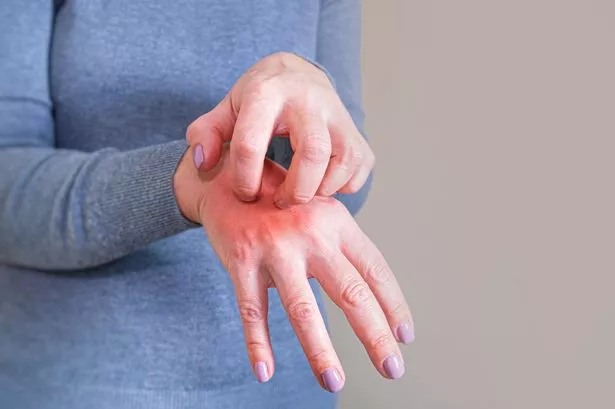Your cart is currently empty!
What ‘Touch Starvation’ Does to Boys And How Parents Can Help

The sight of grown men in professional sports collapsing into one another’s arms, slapping each other’s backs, and celebrating through unabashed hugs and piles of joy is a fleeting glimpse of something much deeper: the human need for touch. These rare public moments of male physical affection stand in stark contrast to the reality many boys grow up in, where hugs and gentle touches often fade as they get older. Instead, boys are quietly taught to embrace a stoic, hands-off version of masculinity. The consequence? A widespread but often invisible epidemic known as touch starvation.
Touch starvation, sometimes referred to as “skin hunger,” is more than a lack of hugs or hand-holding. It is the deprivation of one of humanity’s most essential needs: physical connection. Scientists and psychologists now warn that this absence of touch isn’t just emotionally draining it’s physically harmful, tied to loneliness, depression, stress, and even long-term health issues. Boys, in particular, face a unique vulnerability. From a young age, many are conditioned to avoid affectionate gestures, told to “man up” when they seek comfort, or teased for showing physical closeness with peers. Parents are left wondering: how can we reverse this cycle, protect boys from the silent damage of touch starvation, and create a culture of healthy, positive touch?
What Exactly Is Touch Starvation?
Touch starvation isn’t a fleeting feeling of missing a hug here and there it’s a chronic lack of physical affection that directly impacts mental and physical well-being. Skin is the largest sensory organ, and the moment we experience positive touch, such as a hug or a hand on the shoulder, our brains release oxytocin. Oxytocin, often called the “bonding hormone,” strengthens social ties, lowers stress, and reduces anxiety. At the same time, stress hormones like cortisol drop, bringing down blood pressure and easing muscle tension.
The effects of missing out on these benefits are stark. According to experts like Michael Thompson, PhD, who has worked extensively with children and families, “The bottom line: touch keeps you alive. It’s crucial.” When boys and men are deprived of physical affection, the body compensates in less healthy ways.

Elevated cortisol can strain the immune system, increase the risk of heart disease, and worsen conditions like diabetes and asthma. Emotionally, it may manifest as social withdrawal, irritability, or difficulty forming meaningful relationships.
During the COVID-19 pandemic, the term “touch starvation” entered mainstream conversations as people everywhere were cut off from normal contact. But for boys, this problem runs much deeper than temporary isolation. It is woven into cultural expectations that discourage tender gestures, setting them on a trajectory of loneliness and emotional repression that can last into adulthood.
Why Boys Are at Greater Risk

While touch starvation is a universal issue, boys are disproportionately affected due to rigid societal norms about masculinity. From cartoons to sports culture to the language adults use, boys are bombarded with the message that being tough, independent, and emotionally distant is “manly.” This expectation leaves little room for the kind of nurturing touch that’s essential to development.
Psychologist Michael Thompson points to the “lonely cowboy” archetype the cultural image of a stoic, isolated man as a damaging model. Boys quickly internalize the idea that closeness is unmasculine, and once that belief takes hold, they often “follow the rules absolutely.” Matt Englar-Carlson, a men’s mental health researcher at California State University Fullerton, explains that this socialization begins almost immediately. Even before parents realize it, boys are absorbing cues from media, peers, and authority figures about what kinds of touch are acceptable.
This deprivation doesn’t mean boys stop seeking touch. Instead, it often emerges in socially coded ways: roughhousing, shoulder punches, or mock wrestling. Adults may dismiss these behaviors with a casual “boys will be boys,” but experts warn they’re actually symptoms of a deeper need for affection. The problem intensifies during adolescence, when physical affection between boys is even more stigmatized, leading to withdrawal, anxiety, and difficulties regulating emotions.
Worryingly, studies reveal long-term consequences. Research from 2016 showed that individuals who experienced more positive touch in childhood reported lower levels of depression and healthier romantic relationships later in life. Yet a Gallup poll found that Gen Z and millennial men are the loneliest demographic in the United States today, highlighting the ongoing ripple effects of touch deprivation.
The Science of Skin Hunger

To grasp why touch is so vital, it helps to look at the biology. Human beings are wired to seek connection from birth. Skin-to-skin contact is encouraged immediately after delivery because it helps infants regulate their body temperature, breathing, and emotional security. These early experiences shape how the nervous system responds to stress and how the brain develops attachment patterns.
When deprived of touch, the body’s stress system goes into overdrive. Cortisol levels spike, the immune system weakens, and sleep cycles become irregular. Long-term, this leaves individuals vulnerable to chronic inflammation, high blood pressure, and even post-traumatic stress disorder (PTSD). For boys in particular, who are often taught to internalize stress, the physical toll can be compounded by unexpressed emotional struggles.
Positive touch, by contrast, acts as a “reset button” for the nervous system. Gentle affection triggers oxytocin release, calming the heart rate and soothing anxiety. It is a form of co-regulation, meaning that one person’s nervous system helps stabilize another’s. In friendships and family life, this can create a sense of safety and belonging that boys desperately need but are too often denied.
The link between touch and mental health also explains why loneliness is such a pressing crisis among men. Without consistent, affirming touch, many men experience heightened anxiety, depression, and feelings of isolation. Alarmingly, male suicide rates are nearly double those of women globally. While touch starvation isn’t the sole cause, it plays an undeniable role in the web of factors driving male loneliness.
How Touch Starvation Shapes Behavior

When boys are deprived of positive touch, they often seek substitutes that may seem puzzling or even troubling to parents and teachers. A boy who constantly roughhouses with friends or delivers playful punches isn’t just being rambunctious; he may be unconsciously reaching for physical closeness in the only way society allows him. Experts caution that this can sometimes escalate into aggression or problematic behavior if boys are never taught healthy alternatives.
The symptoms can also be more subtle. Touch-starved boys may appear irritable, struggle to calm themselves, or withdraw socially. They may have difficulty expressing vulnerability, fearing that reaching out for comfort will result in ridicule. These patterns can continue into adulthood, where men might struggle with intimacy, seek unhealthy outlets, or develop avoidant attachment styles in relationships.
The problem also intersects with issues of sexual dysfunction, as highlighted by research linking touch deprivation to difficulties with desire and performance. When touch becomes solely associated with sex, men may lose out on the benefits of platonic, affectionate contact. This not only limits their emotional range but also compounds feelings of shame and isolation when sexual relationships falter.
What Parents Can Do to Help

Parents may feel powerless in the face of such entrenched cultural norms, but experts insist the home is the most important space for change. Small, intentional acts of affection can counterbalance the messages boys absorb from the outside world. As Matt Englar-Carlson emphasizes, “For a lot of boys, the world isn’t safe. So touch becomes a pause, a safe harbor.”
One key step is for parents to examine their own discomfort. If adults seem uneasy with physical affection, children pick up on that hesitancy. Instead, parents can model warmth by offering hugs, hand-holding, or casual touches on the shoulder, normalizing these gestures as everyday expressions of love. Importantly, this doesn’t mean forcing unwanted touch open conversations about boundaries are essential to ensure boys feel respected and in control.
Parents can also incorporate affection into routine activities. Reading together before bed can double as cuddle time; a goodbye hug can be negotiated so it happens at home instead of at the school gate if public displays feel embarrassing. Over time, these gestures build a family culture where affection is safe, consistent, and valued.

Exposure to alternative models can also be transformative. In cultures like Israel or China, platonic male touch is far more accepted, with friends holding hands or embracing in public without stigma. Sharing these examples with boys can spark conversations about how cultural norms are constructed and how they can be challenged. Summer camps, sports teams, or all-boys environments where touch is normalized can further reinforce positive experiences.
Above all, creating a family counter-narrative is vital. Parents might explain, “I know not everyone hugs their parents, but in our family, it’s how we show love.” By explicitly rejecting harmful norms, families can help boys feel secure in their emotional and physical needs, equipping them to carry healthier expectations into adulthood.
A Path Toward Healing and Connection
The problem of touch starvation may feel daunting, but its solutions are within reach. Every hug, every gentle pat on the back, and every moment of physical closeness sends boys the message that affection is not only acceptable but essential. These small acts ripple outward, shaping how boys see themselves, their relationships, and their future.
Society may still cling to the myth of the “lonely cowboy,” but families have the power to write a different story one where boys grow into men who are comfortable with tenderness, connected to others, and unafraid to show care. In that future, the image of men embracing won’t be a rare spectacle reserved for championship games. It will be a normal, everyday reflection of humanity’s most basic truth: we thrive through touch.
